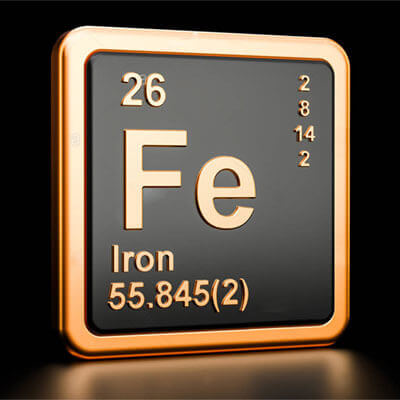The strength of Iron
Most people are familiar with the element iron (symbol "Fe" which comes from the Latin word for iron, "ferrem"), which is one of the Earth's most abundant and useful metals.
Iron is the key ingredient in the production of steel - an essential part of modern living from buildings to transportation, machinery to household appliances. From being a crucial building block of steel to nourishing plants and helping carry oxygen in your blood - Iron is an essential mineral helping sustain life on Earth.

Iron is a key ingredient of hundreds of proteins and important enzymes and plays many vital functions in the body. Iron does a lot more for you than just red blood cell production. It is also involved in energy metabolism, immune function and brain processes.
Normal iron metabolism requires a balance between dietary uptake and loss. A certain amount of iron loss occurs daily and therefore a daily source of iron is needed. Seventy percent of the body's iron is bound to hemoglobin in blood or stored in myoglobin in muscles, while 25% of the body's iron is bound to ferritin. Iron is the active catalyst to bind oxygen to hemoglobin and myoglobin in the body.
Simply put, hemoglobin is essential for transferring oxygen from the lungs to the blood to get to exercising muscles. So, whether you are swimming, biking, running or simply running errands, every breath you take is dependent on iron and ferritin to get the work done.
ASC Reference No. P104P062821SS. If symptoms persist, consult your doctor.
Supports Optimum Blood Health
With proper diet and exercise

Multi-vitamins + Minerals


Multivitamins + Iron + Calcium


Iron + Folic acid


Iron + Vitamin B Complex

If symptoms persist, consult your doctor. ASC Reference No.: P170P062921SS

